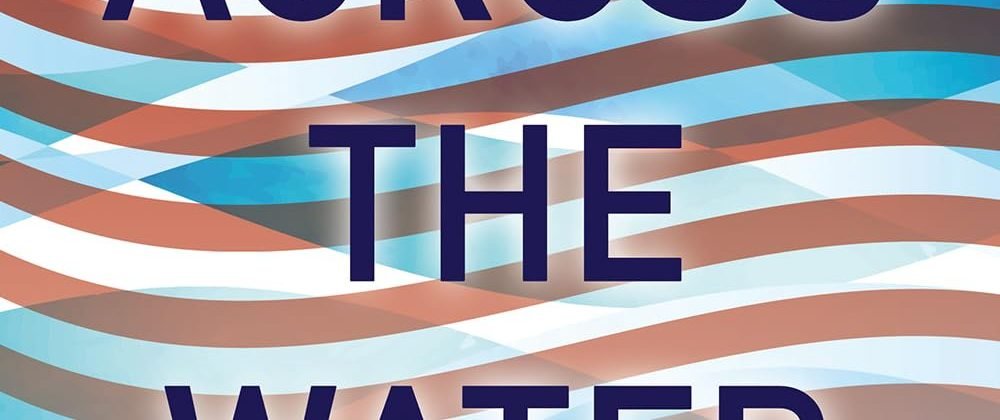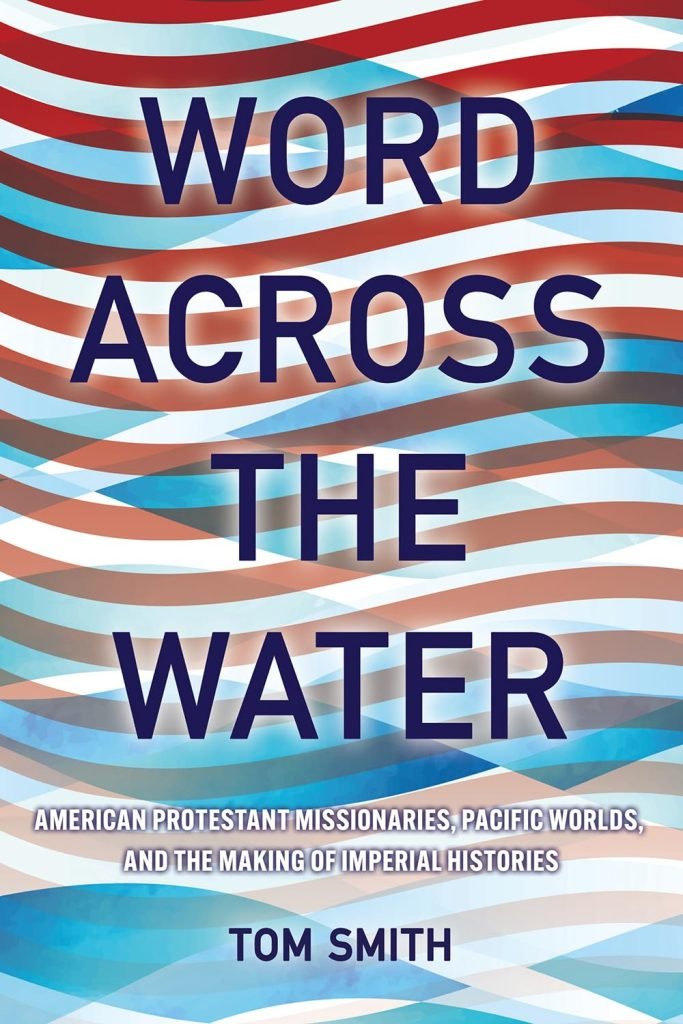

Tom Smith is Keasbey Research Fellow in American Studies at Selwyn College, Cambridge. This interview is based on his new book, Word across the Water: American Protestant Missionaries, Pacific Worlds, and the Making of Imperial Histories (Cornell University Press, 2024).
JF: What led you to write Word across the Water?
TS: The origins of the project lay in a desire to deepen our understanding of US engagements with the Pacific Ocean and specifically of the role that religion played in shaping those engagements. There’s a fairly well-known story that crystallises around the 1898 moment, when the United States seized Hawai’i and the Philippines alongside other Pacific territories. These were actions which imperialists justified using some quite grandiose religious language, insinuating that US expansionism was part of a divinely ordained plan for world history and that to oppose US empire was to oppose God’s designs. I wanted to look past the superficial certainty and bombast of these US imperialists and instead towards a set of diverse and uncertain encounters that help us to rethink the idea of Pacific space in relation to the United States and also the ways in which religion intersected with imperialist thought. To do this, I turned attention to missionaries in two different places taken by the United States in 1898 – Hawai’i and the Philippines – to try and understand how religious actors ostensibly on the frontlines of US imperial endeavours made sense of those political projects. What I found was that their responses were in fact conditioned less by an overarching sense of US imperial purpose and more by their need to navigate their own position between the imperial and the local in different places. This was particularly evident in the ways in which missionaries wrote and spoke about history – rather than relying solely on a narrative of the United States’ providential purpose, they became deeply interested in and influenced by local histories and forms of historical narration in both Hawai’i and the Philippines. This recasts missionaries as more complex actors than they have usually been portrayed as being and also suggests the importance of often-overlooked island spaces as crucial sites of intellectual production.
JF: In 2 sentences, what is the argument of Word across the Water?
TS: As self-styled interpreters of history, US missionaries to Hawai’i and the Philippines sought to produce historical narratives to stoke interest in their cause, locating US imperial interventions and their own evangelistic projects within divinely ordained historical trajectories. As these missionaries worked in the shadow of their nation’s empire, however, their historical narratives increasingly emerged as a way for missionaries to negotiate their own status between the imperial and the local and to come to terms with the diverse spaces, peoples, and traditions of historical narration that they encountered across different island groups.
JF: Why do we need to read Word across the Water?
TS: First, I think the book helps us to better understand the pernicious nature of imperial claims over oceanic space as underpinned by religious and historical arguments, but also the fragility of these claims on the ground. I have drawn inspiration from Pacific scholars in thinking about the ocean not as a natural site for US domination but as a dynamic and multi-faceted space that challenges and confounds American designs and representations. These important characteristics too often get lost in the way US historians talk about oceans and US empire’s relationship to them. Second, I think that we can learn a lot from thinking in a more granular way about supposedly authoritative world views in order to challenge the claims that they confidently make. I’m writing about a period in which written history was seen as an objective, almost scientific pursuit, the practice of which separated white Europeans and Americans from others. Yet the missionaries I study demonstrate that while they took history writing, alongside religion, to be foundational to their authority and projected a sense of certainty, in reality their historical narratives and sense of religious purpose were constantly in flux and responsive to their interests and needs in particular island environments.
JF: Why and when did you become an American historian?
TS: Growing up in (and still working from) the UK, I’ve had a profound interest dating back to my high school days of the ways in which the modern United States has shaped the political and cultural world within which we all live. It was during my PhD studies (also in the UK), which began around a decade ago, that I first really started labeling myself as a US historian, and I spent a lot of time in various places within the United States while completing research for the book. I continue to hope that my ‘outsider’ perspective offers something new and interesting to the field!
JF: What is your next project?
TS: Pivoting away from the precise subject matter of Word across the Water but retaining an interest in the way that religion has structured American views of the world, I’m developing a project to explore how, from the final decades of the nineteenth century, religious networks expanded the geographical scope of transatlantic relations, creating a new centre of gravity on the United States’ Pacific coast in the burgeoning city of Los Angeles. It’s early days and I’m still defining the precise scope of the research, but I’m excited about getting my teeth into something new!
JF: Thanks, Tom!